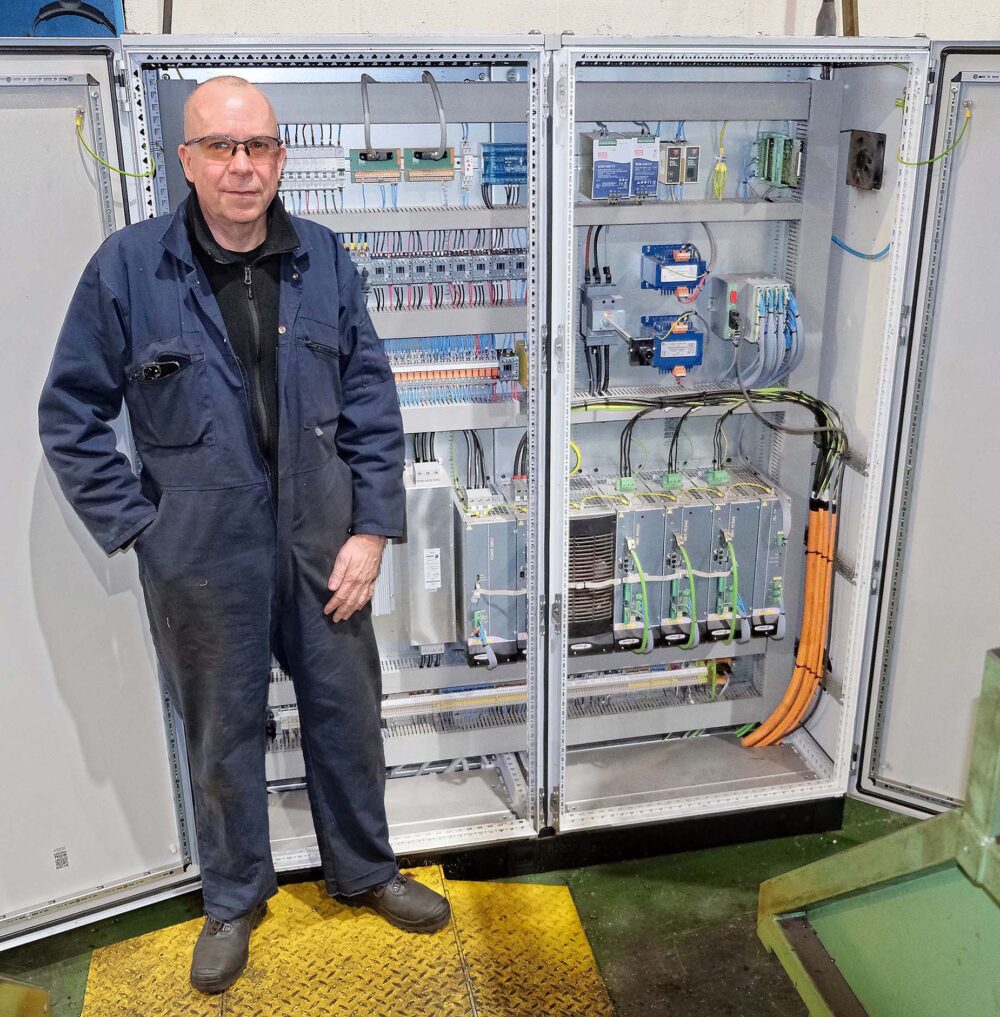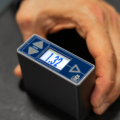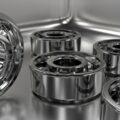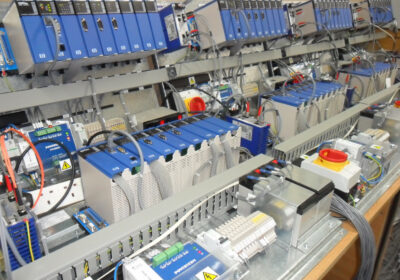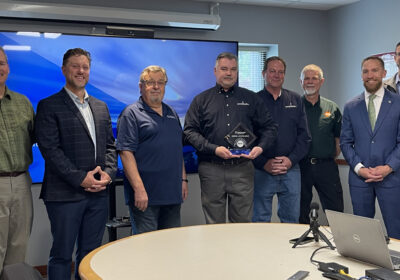Three large, travelling-column bed mills at the Swansea factory of subcontractor Afon Engineering have been retrofitted with a Heidenhain TNC 320 control and new drives to improve their reliability and performance. It has been an object lesson in how mechanically sound machine tools built in the late 1980s can be given a new lease of life for a fraction of the cost of investing in new equipment.
CNC milling forms the mainstay of the company’s business and upgrading three of the Elgamills on site was a prime objective. Engineering Director Andrew Beaujean commented, “The project has given us more confidence to take on a much broader variety of contracts and is bringing in new business as a result, such as evaporator tube plate machining.
The refurbished machines have beds measuring 12, 10 and 8 metres respectively in the X-axis and the mid-size model, when it was installed in 2009 with an earlier Heidenhain TNC 355 control, was the first CNC machine on site. The other two Elgamills, which arrived five and 11 years later, were fitted with a TNC 155 CNC system. Two smaller, as-yet unmodernised machines from the same manufacturer are also on the shop floor.
The ageing electronics and wiring on a pair of even older manual Elgamills, previously in operation in Swansea, had become unreliable. Replacement parts were no longer supported, and it was necessary to go to internet marketplaces to try to source spares. Refurbished parts were becoming very difficult to obtain. Consequently breakdowns were frequent, lasting from a few days up to one month, making job planning problematic.
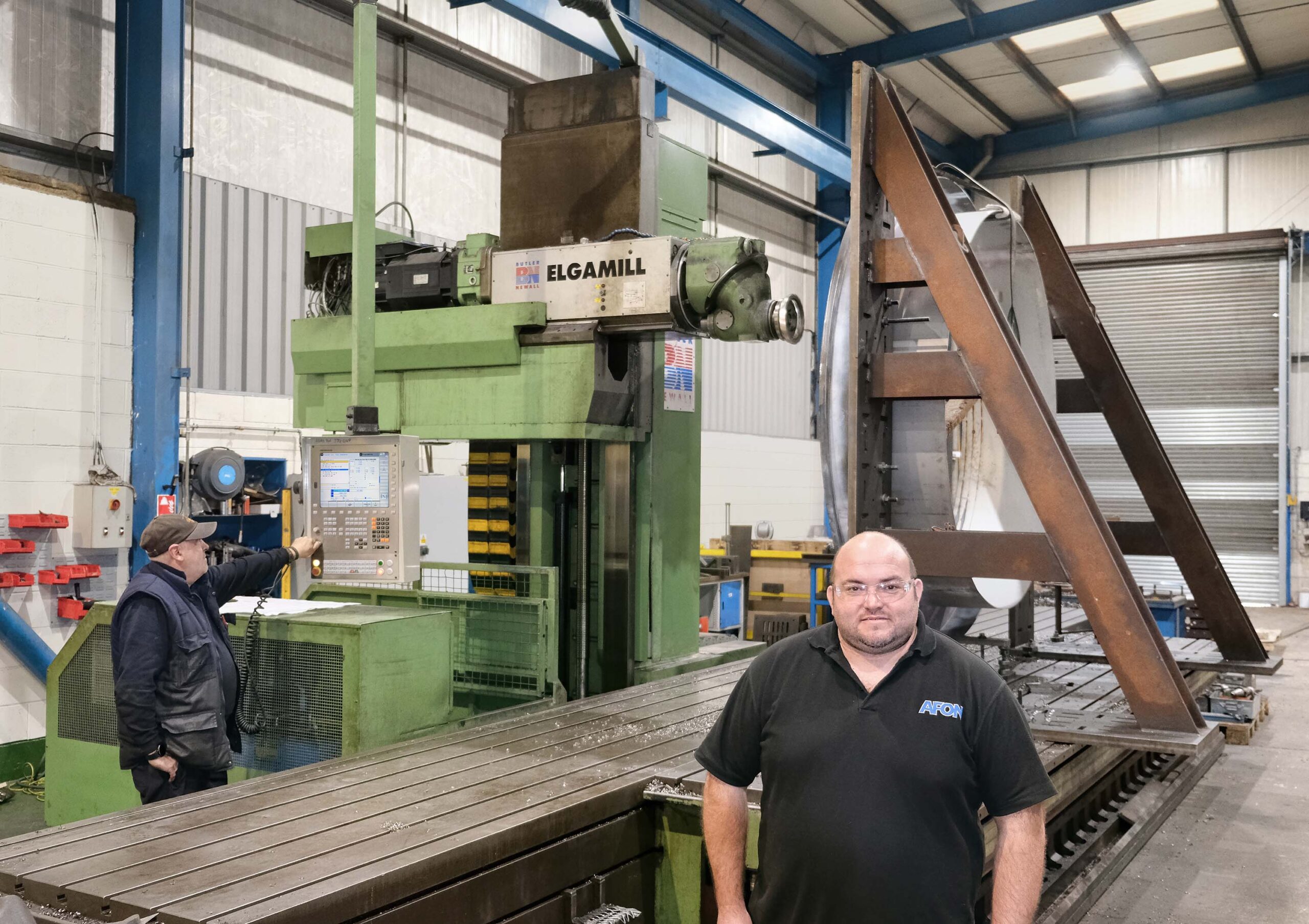
Andrew Beaujean, engineering director of subcontractor Afon Engineering, in front of the recently upgraded, 10-metre capacity Elgamill in Swansea.
Afon Engineering had been firefighting in this way for many years before it started to invest in CNC machines. Even with the more modern 12-, 10- and 8- metre models on the shop floor, reliability issues meant that the three machines were rarely all operating together and sometimes only one of them would be running. With a lot of mainly one-off emergency work carried out on the Swansea site for the steel and energy supply power sectors, and some parts requiring to be on the machines for up to three weeks, it caused a lot of difficulties for Mr Beaujean and his management team.
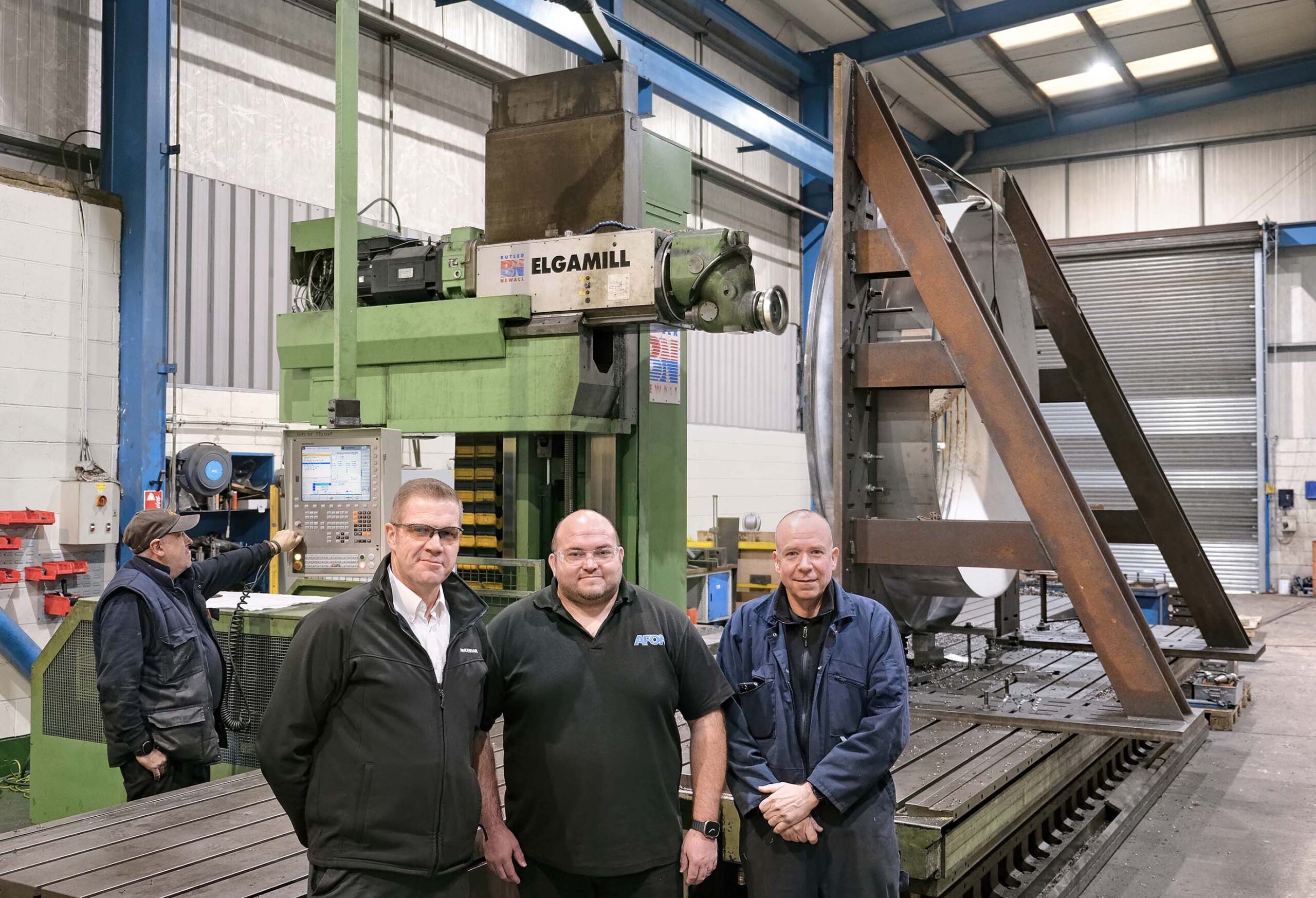
Mr Beaujean with Simon Hopkins (right), Engineering Director of SDH Controls and Services, and Steve Wright (left) from the technical sales department at Heidenhain (GB), Burgess Hill.
Steve Wright from the technical sales department at Heidenhain (GB), Burgess Hill, and Simon Hopkins, Engineering Director of approved CNC retrofitting company SDH Controls and Services, Worcester, met with Mr Beaujean in 2020 to discuss the problems.
Due to the age of the CNC Elgamills, well in excess of three decades, they all had the original analogue drives. A decision was taken to retain analogue technology and perhaps even keep the original motors. However they were no longer supported, so new, more economical analogue drives and motors were fitted, together with the TNC 320 control. Assurance was given by the Heidenhain factory in Germany that the latter would be fully supported for at least the next 15 years, while the drive manufacturer gave a similar undertaking.
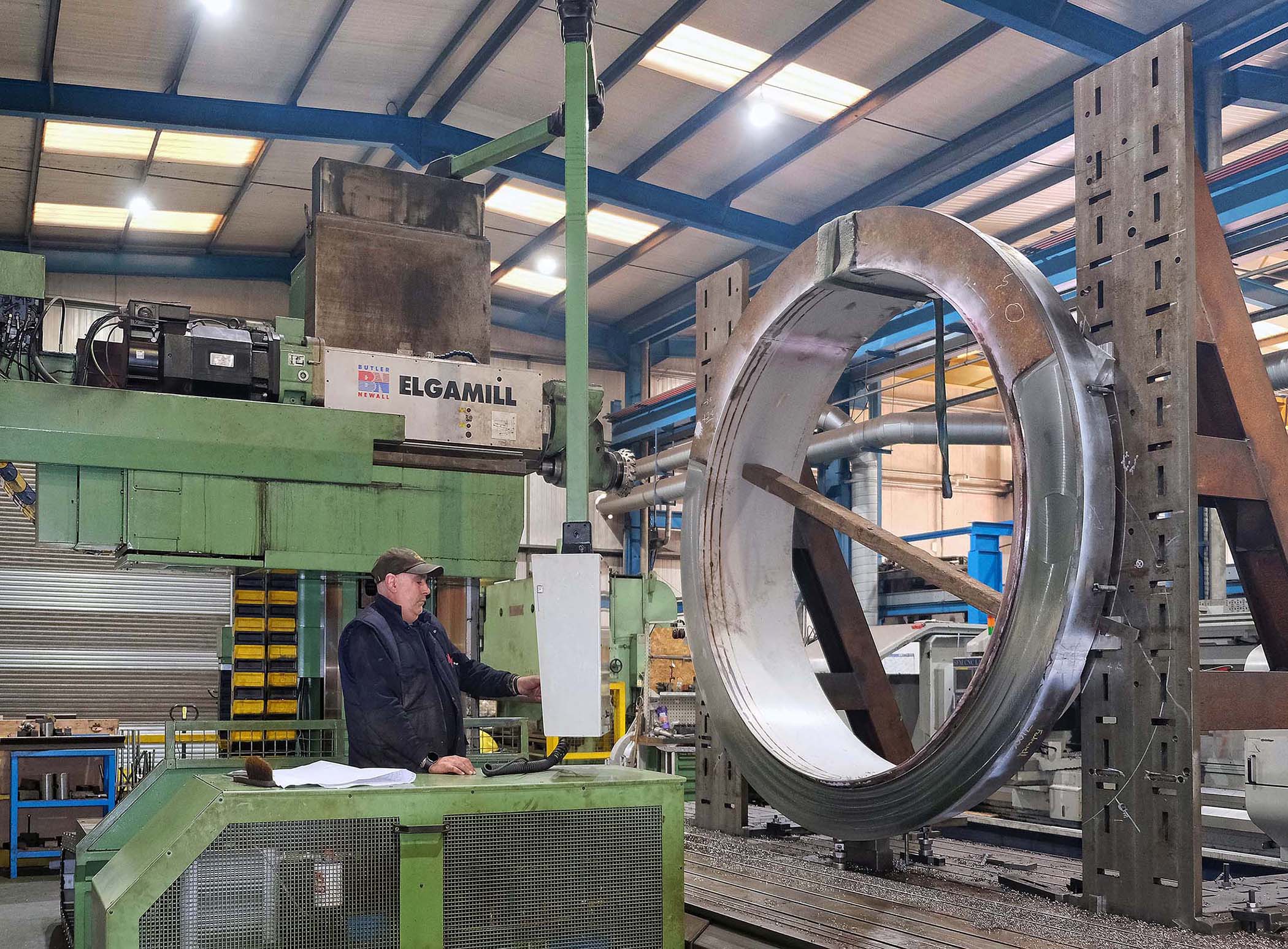
The 10-metre Elgamill is in the process of machining a water-cooled, carbon steel and 310 stainless steel flange for use in the steel industry.
Consideration was given to swapping to fully digital drives and a control package using the more powerful Heidenhain TNC 620 or 640 CNC system. However the overall cost of the refurbishments would have been pushed considerably higher. For machines of such a large size, the productivity benefits would have been very limited, especially as none of them even has an automatic tool changer. One of the machines previously carried one on the column, but it weighed two tonnes and unduly slowed the axis movements, so it was removed.
Reliability is of the essence in the Swansea factory, rather than speed. Dimensional accuracy is also important, as some milled features are tied up to ± 0.1 mm. Machining versatility is needed as well, so the 12- and 8-metre machines have 5-position spindle heads driven by M-codes from the control, while the 10-metre machine has a one-degree rear head controlled by an analogue signal from the TNC 320 and a 2-position front head controlled by M-codes.
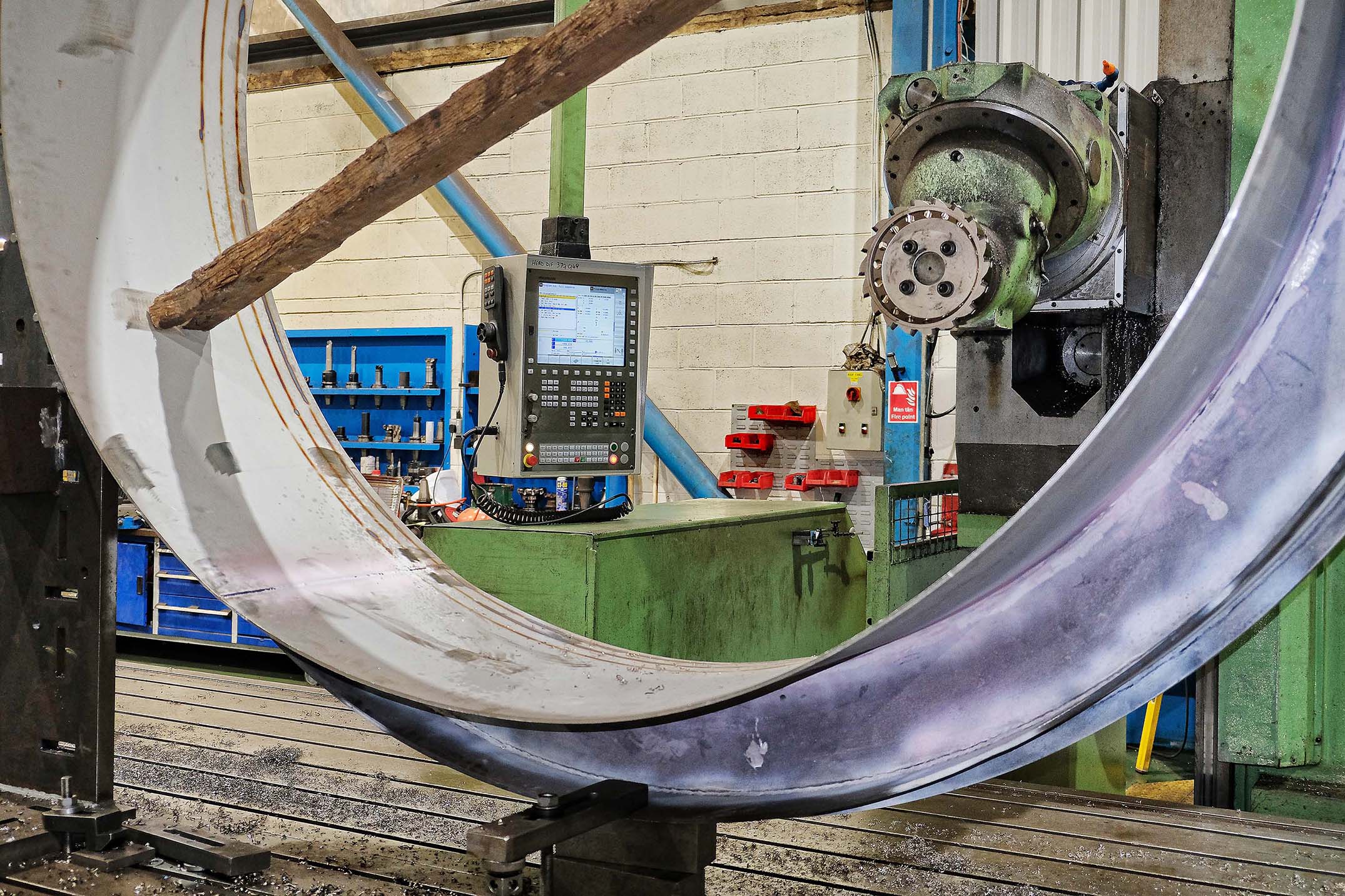
Another view of the steel industry flange, showing the retrofitted Heidenhain TNC 320 in the background.
Another advantage of having new controls is that off-line programming is now feasible, whereas on the older controls this was cumbersome and time consuming. Being able to prepare cutter paths away from the machines maximises spindle uptime. Reliable connectivity also allows input of data from reverse engineering of complex components that could not realistically be programmed in any other way.
Take for example a recent job, a sugar industry evaporator tube plate measuring four metres in diameter and containing 4,500 holes. Scan data, in this case provided by the customer, was loaded into Afon Engineering’s OneCNC CAD/CAM system. A program was then created, post processed and run on one of the Elgamills, the whole project lasting about one month.
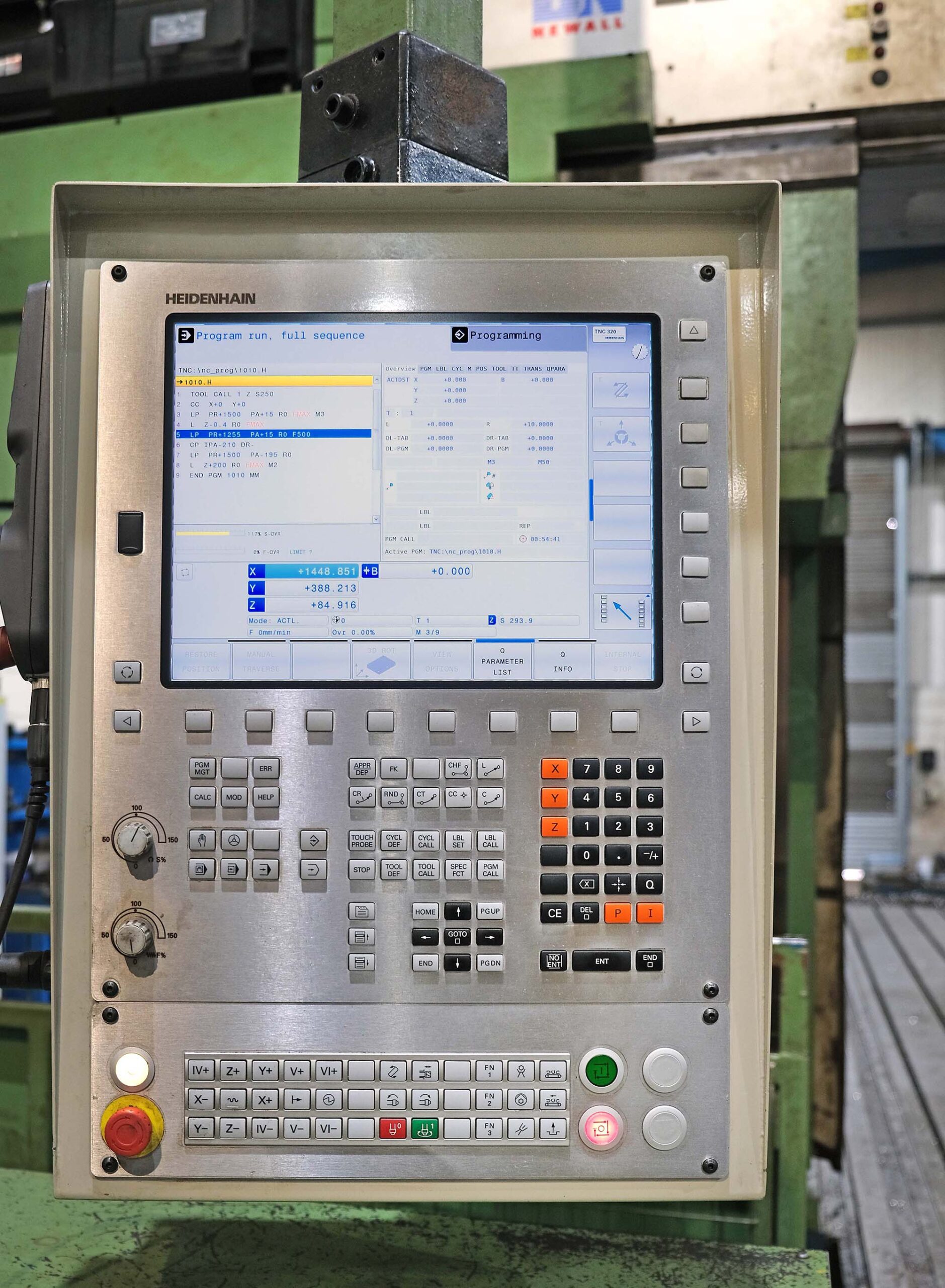
Close-up of the new Heidenhain TNC 320 fitted to the 10-metre Elgamill at Afon Engineering.
The upgrade to the new controls has considerably reduced program writing times by up to 50%, making more jobs economical to undertake. A benefit of having identical TNC 320s on three Elgamills is that the job could have been run on any of them. From the operator’s point of view, all keys, buttons and switches are in the same place, so swapping between machines is seamless.
Mr Beaujean added, “SDH Controls started on the retrofits in April 2022 and completed all three by September of the same year. The relationship we have developed with Simon Hopkins has been excellent and he has to all intents and purposes become our maintenance engineer, working on a variety of different machinery throughout the factory.
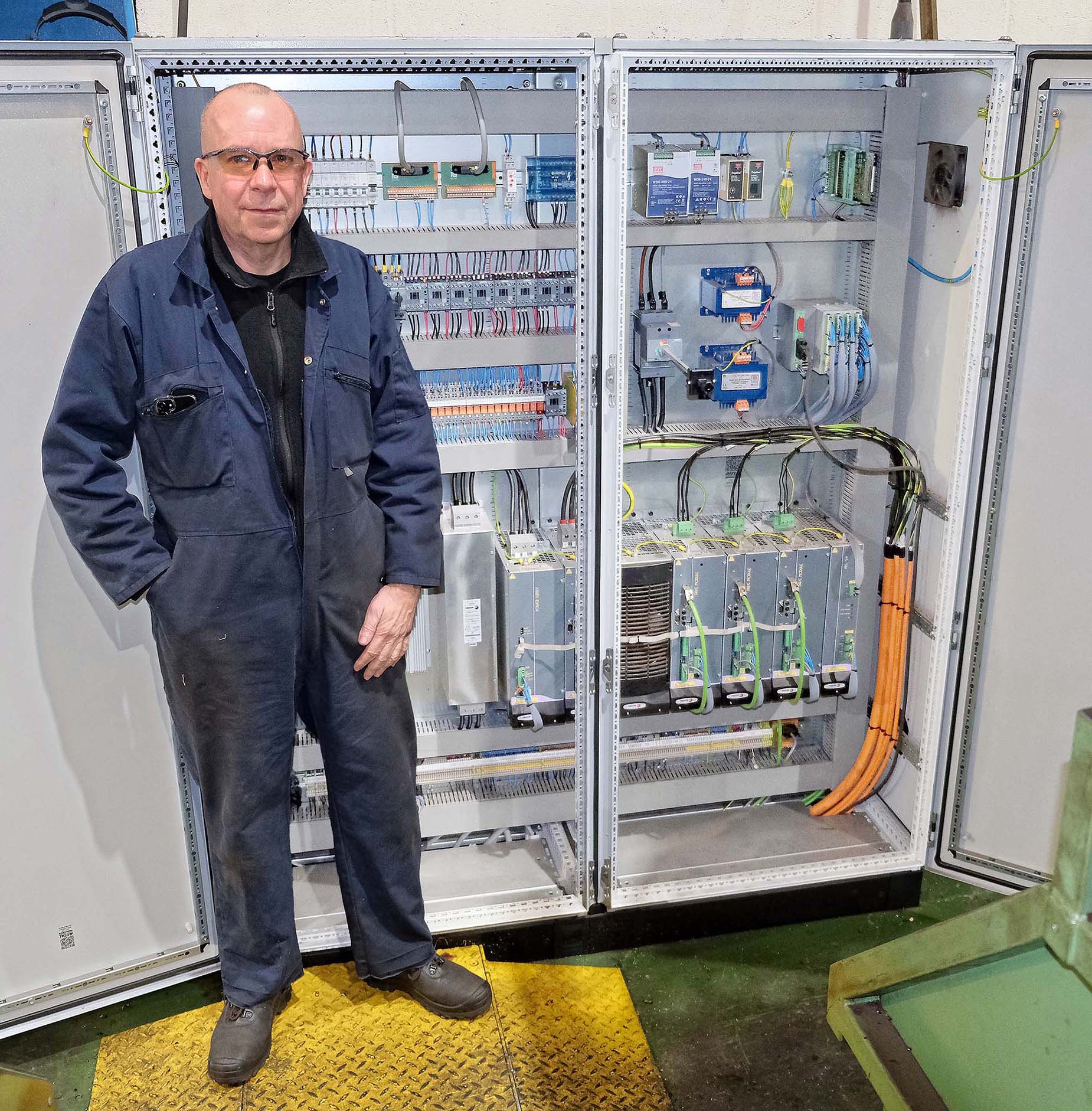
Simon Hopkins, engineering director of approved Heidenhain CNC retrofitting company SDH Controls and Services, showing the control cabinet he built for the 10-metre Elgamill.
“He has also carried out other work on the Elgamills, such as refurbishing or changing gearboxes and racks, and he continues to implement other upgrades including modifying the drives on our T-type travelling-bed Elgamill. More work will undoubtedly follow.”
As to the decision to return to the same control manufacturer for the upgraded CNC systems, he added that of the various makes of control system from three different manufacturers in daily use on the shop floor in Swansea, the operators much prefer Heidenhain due to the ease of use. Clearly, therefore, there was no need to change supplier. Moreover, the overall cost of the refurbishments was within budget at approximately £350,000 for all three machines, an order of magnitude less than purchasing three new machining centres of similar capacities.
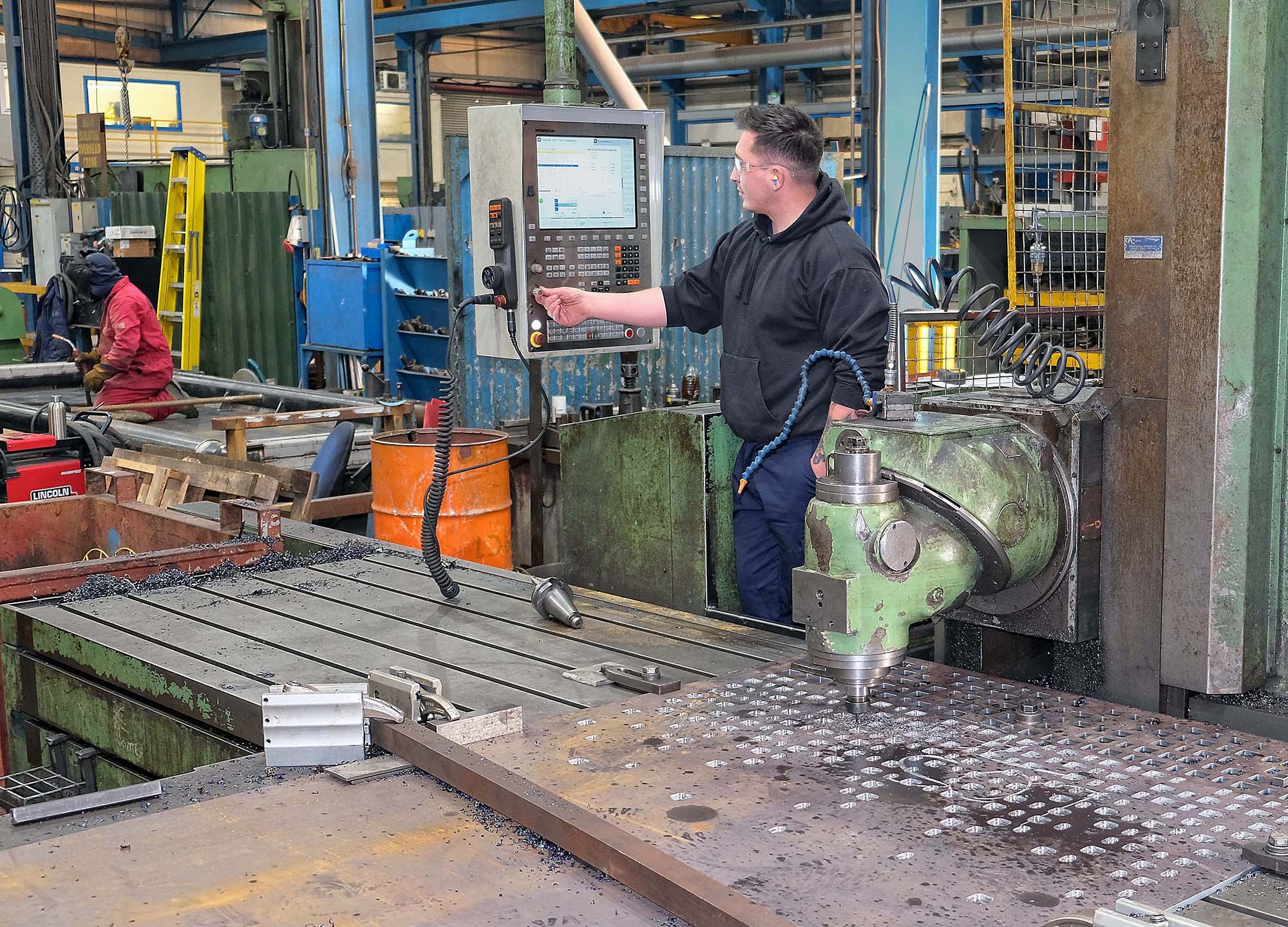
Although one-offs are the norm at Afon Engineering, here the 12-metre Elgamill with retrofitted Heidenhain TNC 320 control can be seen milling one of a batch of 100 architectural hand rail panels for HS2 from weather-proof Corten copper-chromium alloy steel. Each panel is on the machine for most of a day-shift.
The family-run subcontracting firm, Afon Engineering, was formed in 1979 by Andrew Beaujean, providing engineering solutions to local, national and international customers. The scope of its machining capabilities encompasses press braking, tube and plate rolling, plate flattening and plasma cutting, fabrication, non-destructive testing, and pressure testing of vessels.

